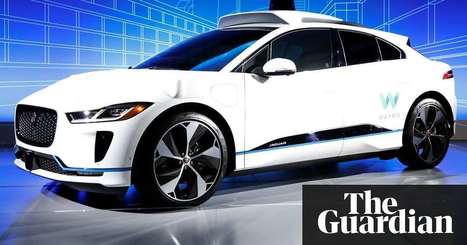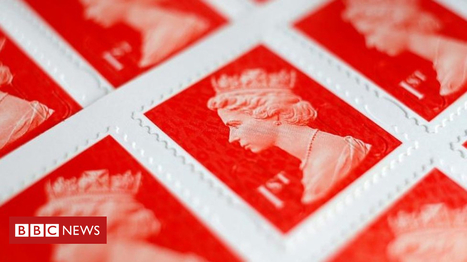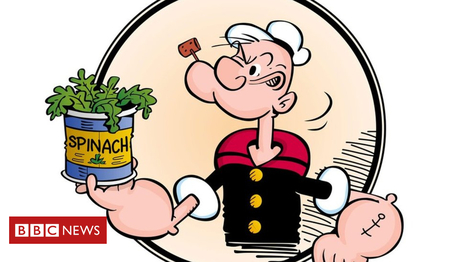Deal, worth up to £1.3bn, shows Waymo’s ambition in developing driverless ride-hailing service
Follow, research and publish the best content
Get Started for FREE
Sign up with Facebook Sign up with X
I don't have a Facebook or a X account
Already have an account: Login

Microeconomics: IB Economics
29.2K views |
+2 today
Follow
Filter by date
Tags
A brief overview of relevant articles for IB, A-Level and Pre-U economists relating to microeconomic issues
Curated by
Graham Watson
 Your new post is loading... Your new post is loading...
 Your new post is loading... Your new post is loading...
The plastics industry says a deposit return scheme would mean consumers would have to pay more for drinks.
Graham Watson's insight:
Another article which looks at a policy designed to tackle waste. Apparently, the UK is considering a Scandinavian-style deposit return scheme. However, not everyone is enthusiastic about the scheme: there's an opportunity cost of installing 'reverse vending machines' and it's likely to be producers that are going to have to meet this cost. Of course, they are then likely to pass this on to consumers, who are probably going to pay more for their drinks. Lots of good evaluative angles here - relating to the possibility of government failure, who bears the burden of the scheme and whether or not, ultimately, it enhances efficiency or not.
Across Great Britain, adults are drinking less often. So how are tastes changing and why are they cutting back?
Graham Watson's insight:
The over-consumption of alcohol is a demerit good, but equally the drinks industry is facing many challenges of its own, not least a decline in the number of pubs. This article is an interesting primer that looks at how patterns of alcohol consumption have changed over time and the implications of this.
Delivery firm to offer 6,000 drivers right to be classified as workers in wake of Don Lane’s death
Graham Watson's insight:
Is this a turning point, one of many in the gig economy, with courier DPD offering self-employed couriers the right to be classified as workers in the wake of a worker's death. Additionally, they are starting to offer sick pay and the £150 daily fine levied if workers were unable to find cover in the event that they were going to be absent. The latter, in particular, strikes me as cruel.
Royal Mail says the price rises are necessary to maintain the universal postal service.
Graham Watson's insight:
The price of stamps is always an interesting proxy for inflation, and this article reveals that had stamps tracked inflation since 1989, a first class stamp should cost 41p not the 67p that it now does. However, the reason this is 'Microeconomic' is because I'd like to unpick what might be behind the price increases. A rise in price, elementary microeconomic principles tell us would come about either because of an increase in demand or a reduction in supply. However, has there been an increase in demand? You wouldn't have thought so - the number of letters sent has decreased, although online retail has increased the number of parcels sent. Thus, are the former subsidising the latter? Alternatively, have costs risen? This seems more likely - the unit cost of delivering a letter is likely to have risen, particularly if the Royal Mail has been unable to drive down costs, notably labour costs. And yet, you would have thought that the threat of competition, not least in the parcels sector, would have put downwards pressure on prices as well as the rising number of competitors. So, is this sort of rate of price increase sustainable? |
Advertisers are the experts at persuading us to eat burgers, crisps and fizzy drinks. But what if they tried to sell us something healthier?
Graham Watson's insight:
We're all aware of the power of advertising, but can it be used to popularise vegetable consumption? Popeye did wonders for spinach sales, but will this also work for other vegetables. It's interesting to see an top adman confess that 'happiness' not 'health' sells, and it's to be hoped that this will inform the advertising and make it less paternalistic. Nevertheless, one wonders what Christopher Snowden would make of it.
House prices falling in almost half of all postcodes in the capital, figures reveal
Graham Watson's insight:
An interesting little article that highlights the changing nature of the London housing market. The falling house prices in half of all postcodes reflects the changing D&S conditions in the capital.
Oil firm says gas could account for 10% of global energy consumption by end of century
Graham Watson's insight:
If even Shell are endorsing hydrogen cars, then it seems that the end of the petrol engine is nigh. This article details the fact that the oil company believes that, apart from the growth of battery-electric vehicles, these cars are going to be the way in which we meet our climate change commitments.
Smart Energy GB boss says those who fight move risk new market entrants overtaking them
Graham Watson's insight:
Are smart meters the future? Certainly the chief executive of Smart Energy GB, Sacha Deshmukh, thinks so, arguing that the Big Six energy companies haven't been wholehearted in supporting them, but that this won't be in their own self-interest in the longer term. Given that there is a commitment to offer the meters to every home and business by the end of 2020, he argues that this will increase competition, increase switching and those firms than don't offer smart meters are effectively signalling something about the price of the energy they sell. Thus, whilst there are short-run concerns about the cost of smart meters, their supporters are of the view that this will be more than offset by subsequent efficiency gains. |

















